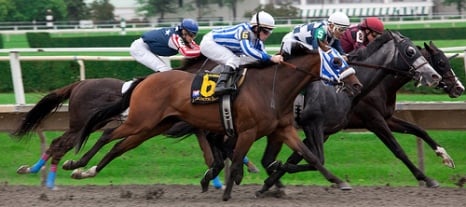Whipping Doesn’t Make Racehorses Go Faster
Anyone who’s ever watched a racehorse being flogged down the home stretch can see the obvious: It’s animal abuse. Jockeys routinely strike thoroughbreds 15 to 20 times before they cross the finish line. Now, thanks to a new study from the University of Sydney, we know that whipping doesn’t even make the horses run faster.
This first-of-its-kind research into the effects of whipping, which was conducted by studying horses’ speed in racing clips, found that horses accelerate most during the periods of races when no whip is used. Down the final stretch, as jockeys whip mercilessly, horses either slow down or maintain the same speed.
And whipping, says the researcher, actually punishes racehorses for running fast rather than encouraging them to go faster. Are you paying attention, National Thoroughbred Racing Association?
PETA’s working toward the day when horse racing ends for good—and we’ve made huge progress, but until then, we aren’t letting the racing industry off the hook. We continue to push the racing industry to ban whips, enforce a zero-tolerance drug policy, dump dirt tracks in favor of softer grass tracks, and wait until horses’ third birthdays to use them in competitive racing. Learn more here.
Written by Jeff Mackey

